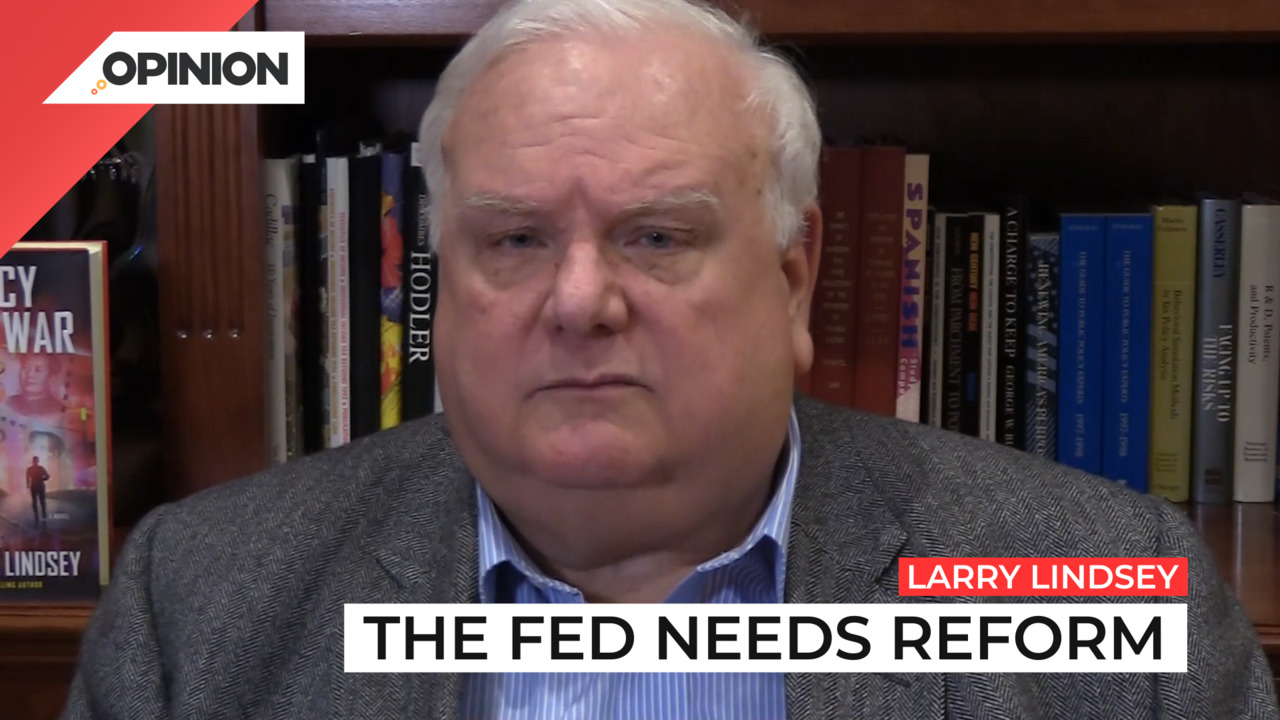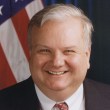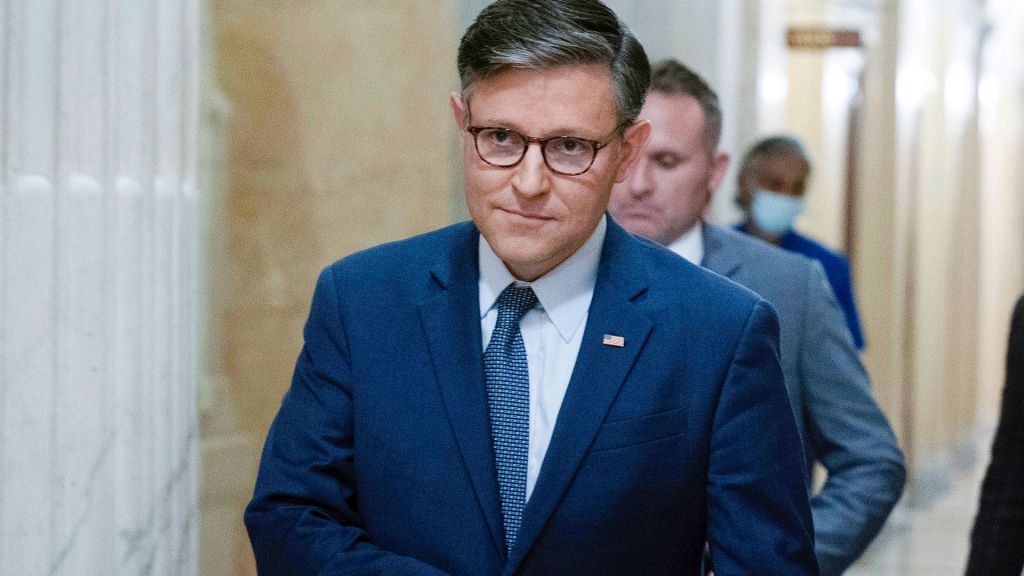
Commentary
-
Our commentary partners will help you reach your own conclusions on complex topics.
The Fed is really in a dilemma right now. Now, Chairman Powell has promised that he is going to do whatever it takes to tame inflation. That kind of makes sense. After all, they’re trying to clean up the mess they created in the first place.
But the cost of that might be high in terms of lost output, ie a recession. Well, how should the Fed view things? It really depends on which one any given Federal Reserve thinks is more dangerous, inflation or recession.
Back in the 1990s, Professor John Taylor, at Stanford University, did a test of how the Fed actually behaves. It’s called the Taylor rule. But it’s not a rule at all. It’s simply a statistical study of what the Fed actually does. And he basically had three parameters.
First, he thought in normal times, the Fed funds rate should equal the inflation rate plus two points. Second, he said, how far off are they from their growth target, and they had an adjustment for how far off they were. And then how far off were they from their inflation target.
And they adjusted that normal rate, based on how far off they were. Today, if you simply applied the Taylor rule, the Fed funds rate should be 9.4%. The Fed just raised it to a range of three, three and a quarter percent.
So basically, the Taylor rule is saying the Fed funds rate should be about three times what it currently is. Up, obviously, if you’re going to have anything like a Taylor rule kind of behavior, then you want to tackle inflation first, that means moving interest rates up.
Likelihood is that even after a September hike, we’re probably going to end up with further hikes later in the year. And we’ll end up with a Fed funds rate in the high threes or perhaps 4%. That would be a significant hike in interest rates, if we continue to have a recession, and the odds are that we will, that would drop inflation for the entire year, from the current six, eight down to about five, three. That would mean the second half of the year would have inflation of just 3.8% a lot lower than what it ran in the first half of the year.
That’s light at the end of the tunnel. That’s if everything works out just right.
Will it work out just right? Well, that’s quite unclear. And even if we do get there, the Fed shouldn’t cut rates, it can least leave them on hold until inflation drops below 3%. And closer to the Feds long run target.
Well, what can we say about this experiment? Let’s assume that it works. First of all, we’re going to be paying for this disinflation with a pretty deep recession. I estimate that the year it’s going to decline by about 1.6%. In terms of GDP, that’s quite significant.
The great financial crisis, for example, which took place in 2008 2009, resulted in average reduction in GDP of 2.6% per year.
The Volcker back to back recessions in 1980, through 1982 averaged just a 6/10 of a percent decline in inflation, over 12 quarters over those three years.
So the 1.6% rate of decline this year, is I would call it a moderately deep recession. That’s going to be painful. The second is a risk that we have and that is that financial markets become what the Fed calls disorderly, disorderly market means some people won’t get a be able to borrow. It may mean that you have a spreading problem throughout the financial markets as households, firms pension funds, what have you begin to lose a lot of money, they then become insolvent and the problem spreads.
So the Fed has to be very, very careful about that. One risk if things get too disorderly is that we ended up with something called a debt deflation. And believe it or not, that’s actually worse than inflation, it was very similar to what we had in the 1930s. Prices start to fall. And what that means is anyone who’s indebted, now is going to find it harder and harder to pay back their debts. Why? Because deflation is bringing down their incomes and the cost of carrying that debt goes up.
That’s true, not just for households, particularly in the form of their mortgages, their houses might go underwater, meaning their house value might decline to less than their mortgage. That creates all kinds of problems.
But the biggest problem is going to be for the government. Uncle Sam is by far the largest debtor in the history of mankind. Well, if we have deflation, the burden of that roughly $30 trillion of debt goes higher and higher and higher, because there’s less tax revenue from the economy to help service it.
Others types of government spending will get crowded out, the government may choose to raise taxes, which will only make the depression or the deflation worse.
So this is something that must be avoided. Here’s the big question. Is the Fed deft enough in its policy setting to be able to avoid it? Or might they cut too far? The risk here is that they haven’t done a good job so far.
You might remember that they completely missed inflation. Last year, they called inflation, transitory, they didn’t even get around to acknowledging it was a problem until inflation was already in the six or 7% range and was staying there. Well, once they got inflation wrong, they also got their growth forecast wrong.
In December of last year, their forecast for 2022 was 4%. Growth. Oops, by March, they cut that forecast to 2.8%. In June, they cut it to 1.7%. And before all is said and done, we’re probably going to have a decline a negative GDP growth rate.
This is a terrible record. And yet we have to rely on them to get things right. This is not going to be an easy task. We have problem and decision making at the Fed. It’s become much too uniform. There is no real discussion that happens. They kind of all get together and decide by the seat of their pants, what they should do, and there’s no dissent. The Fed needs reform.
There are outcomes worse than inflation. And we’re just going to have to keep our fingers crossed, that the Fed doesn’t produce an even worse outcome in the form of a debt deflation.
-
Election 2024 will boil down to the Great Lakes states
Pollsters and pundits have been engaged in a long debate about how Biden or Trump might win the 2024 election, with much of their focus spent on the “swing state” electoral battlegrounds. While the winners of Alabama or California may be obvious, for instance, who wins Pennsylvania is a more difficult question. Watch the above… -
Why the Fed should consider Theory of Reflexivity when fixing policy
The Theory of Reflexivity, often used in the context of economics and financial markets, implies that investors don’t base their decisions on reality but on their perceptions of reality. This creates a feedback loop where investors’ perceptions influence economic fundamentals, which in turn alter investor perceptions. Watch the above video as Straight Arrow News contributor… -
Federal Reserve surpassed its own wildest expectations
On May 14, the U.S. Bureau of Labor Statistics released the most current producer price index (PPI) report, which showed an increase of 0.5% month-over-month in April. After the report’s release, U.S. Federal Reserve chairman Jerome “Jay” Powell said that while he believes the current policy rate is restrictive by many measures, the Fed needs… -
Polls give slight advantage to Trump in Electoral College
With the U.S. general election only six months away, leading candidates President Joe Biden and former President Donald Trump appear to be engaged in a very close contest. In their 2020 race, the winner of the Electoral College was ultimately determined by a relative handful of voters in just a few swing states, even though… -
College sports is big money but not everyone benefits
March Madness has wrapped up and Caitlin Clark has emerged as a household name as well as a wealthy student athlete. Earning over $3 million throughout her college career, her success stands in stark contrast to the previous notion that collegiate athletes shouldn’t earn anything beyond their scholarship. Straight Arrow News contributor Larry Lindsey examines…
Latest Opinions
-
 Getty Images
Getty Images
Minimum wage increases coming for 9 million Americans
-
 Getty Images
Getty Images
Authorities in South Korea seek arrest warrant for impeached President Yoon
-
 Getty Images
Getty Images
Belgium becomes first EU nation to ban disposable vapes
-
 Getty Images
Getty Images
Bring first-class vibes to your economy seat with these new travel accessories
-
 USDA
USDA
Two Oregon men found dead after failing to return from Sasquatch search
Popular Opinions
-
In addition to the facts, we believe it’s vital to hear perspectives from all sides of the political spectrum.






